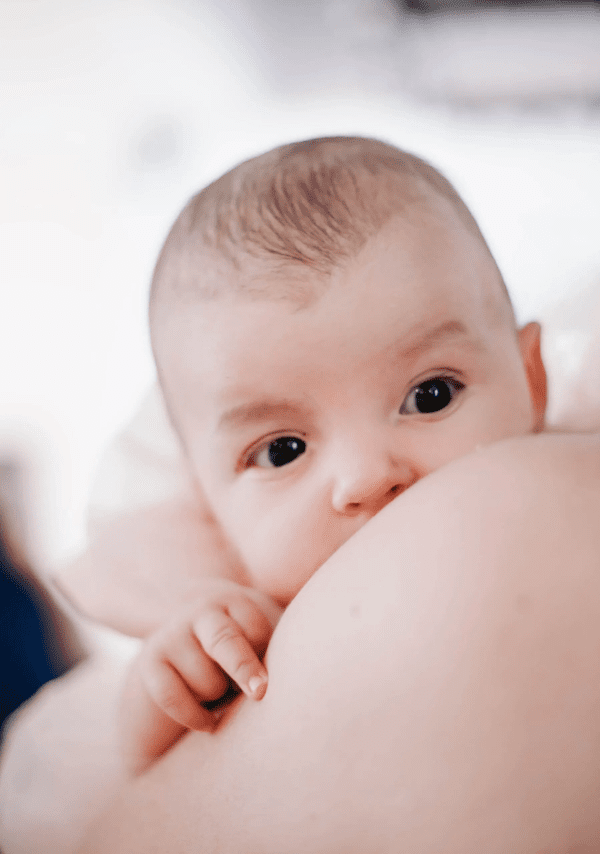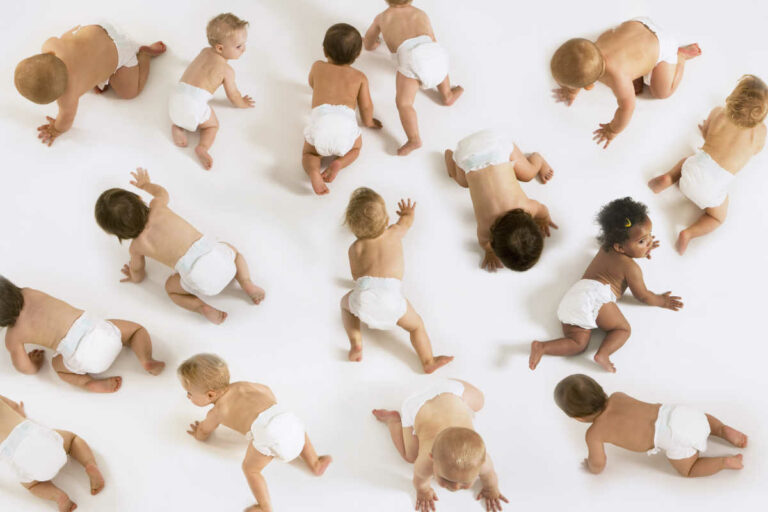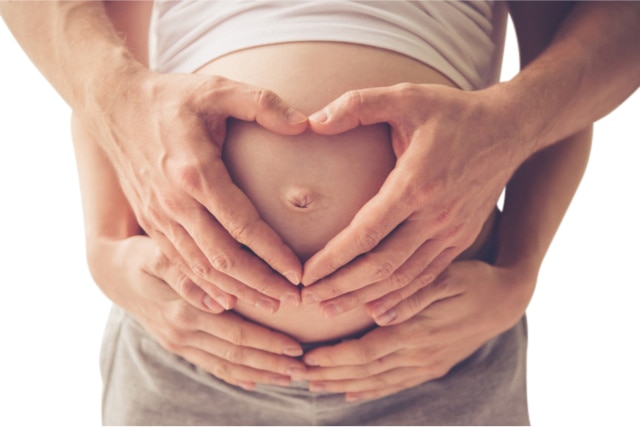Covid Vaccine and Fertility – Read This Before You Get A Vaccine

In this post, we cover the topic of covid vaccine and fertility. We will hopefully debunk misconceptions surrounding fertility and the covid vaccine. Here’s what we’ll talk in this post:
- Covid Vaccine and Fertility – Misconceptions of The Vaccine
- Benefits of the Covid Vaccine And Fertility
- Can COVID vaccine affect Fertility and Pregnancy?
- Important Fertility Tips During Pandemic
- How Does the Virus Affect Fertility?
- Covid Vaccine and Fertility – What Do Women Say?
- Can COVID Affect Women’s Menstruation?
- Will COVID Vaccine Affect Male fertility?
- Covid Vaccine and Fertility – Starting a Family During The Pandemic
- Talk to a Doctor About Covid Vaccine and Fertility
Covid vaccine and fertility - Misconceptions of the vaccine
When the vaccine was released to the public, a rumor spread that the vaccine affected women’s ability to get pregnant. It originated from a German scientist who hypothesized that the vaccine could attack a protein in the placenta. This theory was due to a similar structure that the two had. Luckily, this hypothesis was proven false. However, the news spread like wildfire. No matter where the rumor came from, it frightened many young women who were planning to have children in the future.
Many reproductive-aged individuals opted out of the vaccine due to concerns of the impact of covid vaccine and fertility, despite a recent study consisting of more than 2,000 couples in the United States and Canada. The study showed that covid vaccination does not reduce chances of conception for vaccinated males and females compared to unvaccinated people.
The only change showed that if the male had tested positive within 60 days of a given cycle, they are 18% less likely to conceive in that cycle. For instance, fevers, a common symptom of covid, are known to reduce sperm count and motility. However, this is strictly temporary, and can be avoided with the vaccine.
The study concluded that there was no scientific evidence that the COVID-19 vaccine harmed the body’s chances of fertility. Ongoing trials have continued to support this conclusion.
Another misconception is that the vaccine hasn’t been tested enough. Despite its rapid hit to the market, the vaccine has still followed all required tests and trials. It should comfort you that there were enormous amounts of money and resources put into making it. And the science behind the COVID-19 vaccine is nothing new. These vaccine methods have been in use for decades.
Benefits of the vaccine
For pregnant mothers with the vaccine, antibodies can be passed to the child in embryo. They can also do the same for mothers who are breastfeeding. This won’t hurt the baby, scientist say. Likely will just be an added preventive until the child is old enough for its own vaccine. The CDC recommends vaccines for children as early as 6 months old.
The vaccine works best to reduce the likelihood of becoming seriously ill, needing hospitalization, or death. Because pregnancy increases the mother’s risk, it is extremely important to take this preventative. Much like other vaccines, it is best to stay up to date and receive the recommended doses. These benefits should outweigh the risks of covid vaccine and fertility impacts.
Can COVID vaccine affect Fertility and Pregnancy?
The short answer is no. There is no scientific evidence that the vaccine interacts with a woman’s reproductive organs. Moreover, after public concerns, the National Institute of Health funded specific research to observe any potential relationship between covid vaccine and fertility. Several studies investigated the safety of the vaccine for fertility and pregnancy.
Based on the published studies, it seems that the Covid vaccine will not impact your chances of getting pregnant. Over 200,000 pregnant women, who received a dose of either Pfizer, Moderna, or JJ, have gotten pregnant without any health issues.
And after getting vaccinated, it is normal to experience side effects like nausea, chills, headaches, muscle pains, and fevers. This is because the body is learning to build protection against the virus. Any side effect wears off after a day or two.

Important Fertility Tips During Pandemic
Whether you decide to get the vaccine or not, it’s a personal decision. However, with or without the vaccine, it’s important to follow some simple rules to increase your immunity, your fertility, and your overall health.
First, clean up your diet. Switch to organic food, organic meat, and eggs without hormones. Then, clean your skincare and personal care. Make sure you use safe, non-toxic products, ideally organic. Plant Mother is a 100% clean skincare line with Vitamin C serum and Retinol serum that are made of fresh and healthy, plant-based ingredients. They’re made without any harmful ingredients or endocrine disruptors that can impact your fertility in a negative way. Finally, make sure you avoid environmental toxins – reduce your electromagnetic exposure and stop the use of plastics.
How does the virus affect fertility?
The CDC recommends that pregnant women and those trying to get pregnant get the vaccine, and the boosters. In fact, getting COVID during pregnancy while being unvaccinated can increase risks for both the mother and the baby.
People who are pregnant are at a higher risk of experiencing severe symptoms from COVID-19. Severe illnesses often require hospitalization, admission to an intensive care unit, and the use of a ventilator. Here is the CDC’s data on the impact the virus has on women with COVID-19 during pregnancy.
Studies have shown that contracting COVID while pregnant increases one’s risk of preterm birth, low birth rate, and stillbirths. With the Delta variant of coronavirus, researchers saw an increase in severe cases during pregnancies for unvaccinated women.
The respiratory virus has also been known to strain the mother’s placenta. A study noted that COVID caused inflammation and tissue damage in 22 out of 52 mother’s placentas. The placenta specifically works to deliver nutrients, oxygen, and hormones to the growing fetus. Unfortunately, researchers are unsure of the short or long-term effects this could have on a fetus. Further studies will answer such questions.
Given all we mentioned above, couples should be reassured that the vaccine is safer in comparison to the effects of COVID on unvaccinated people.
Covid Vaccine and Fertility – What Do Women Say?
Concern of infertility is the biggest reason for vaccine hesitation. Therefore, many pregnant or trying to get pregnant women sought out online forums to ask others their real-life experiences. The most popular comments were mothers vouching for the vaccine. “I got both shots in my second trimester and my 3mo is healthy as can be.” Another commenter said, “My wife was double vaxxed with Pfizer as was I prior to us conceiving then she got the booster while pregnant. Healthy pregnancy and now a healthy 3-month-old.” Someone even joked that the vaccine was Captain America serum because their baby girl came out at 10 pounds.
Surprisingly, many had believed that the vaccine helped them conceive. One stated that she had been subject to infertility for nearly 7 years, but after her booster she was finally able to conceive. Another mentioned that at 42 years, she became pregnant a week after her booster. “Either I’m lucky or this vaccine helped me.” She claims that this is because her cycle was thrown off and she was ovulating earlier than she expected.
Although women who previously believed they were infertile have gotten pregnant after the booster, this does not mean that there is a relation between the vaccine and conception. There are many other factors that could have contributed in each case.

Can Covid vaccine affect women’s menstruation?
There have been reports that after receiving vaccination, women have been experiencing heavier and irregular periods. These irregularities are minimal and temporary. On average, there is a less-than-one-day change in period length. These are nothing to worry about.
Although, the scientists are unsure what is causing this reaction. Theories suggest that the endometrium, the lining of a woman’s uterus, is linked to the body’s immune system. It is very likely that the triggering of the immune system does this.
Can Covid Vaccine Reduce Male Fertility?
In addition to concerns for female fertility, studies have researched the potential effects the vaccine has on sperm. There has been no evidence that the vaccine impacts sperm volume or motility. In fact, the virus actually threatens male fertility, by decreasing motility and increasing sperm abnormalities.
Covid Vaccine and Fertility - Starting a family during the pandemic
First, keep you and your partner healthy from COVID by getting vaccinated. Pregnancy increases the risk for severe illness and having COVID while pregnant can impact the baby’s health. Whether trying for a baby or already pregnant, it is important to also wear masks when in crowded areas and try to social distance when possible.
After more than two years of the virus, over 6 million people on the planet have passed away from COVID. Unlike other viruses, this one is extremely contagious. So, if you are experiencing symptoms like sore throat, runny nose, loss of taste or smell, or fever – get tested. Even people who have been asymptomatic have still experienced long-term effects. Although the symptoms affect people differently, you cannot predict how the virus will affect you.
If you have COVID with a newborn, take precautions to reduce the chance of spreading the virus to the newborn. For instance, wash your hands before holding the newborn, wear a mask when within 6 ft of the baby, and try to stay 6 ft away as much as possible. If the baby is at least 6 months old, get them vaccinated.
If you are symptomatic, you should isolate yourself for 5 days from when your symptoms appeared. However, you should continue to wear a mask for 10 days. Ask to have someone help assist with the newborn care if possible.
If your baby is experiencing any symptoms, contact your healthcare professional. Symptoms manifest in fever, lethargy, cough, runny nose, vomiting, and shallow breathing.
Talking to a doctor About Covid Vaccine and Fertility
It is understandable to have fears. That is why you should talk directly to your doctor instead of using the internet. As discussed, the internet can spread misinformation very easily. If you have any concerns or worries, your doctor will be able to ease them. Doctors are prepared to answer your questions and have seen firsthand how both the vaccine and COVID impacts patients.
Medical Disclaimer
This content is for informational and educational purposes only. It is not intended to provide medical advice or to take the place of such advice or treatment from a personal physician. All readers of this content are advised to consult their doctors or qualified health professionals regarding specific health questions. The publisher of this content does not take responsibility for possible health consequences of any person or persons reading or following the information in this educational content. All viewers of this content, especially those taking prescription or over-the-counter medications, should consult their physicians before beginning any nutrition, supplement, skincare product, or lifestyle program.
References:
- https://pubmed.ncbi.nlm.nih.gov/35051292/
- https://www.mayoclinic.org/diseases-conditions/coronavirus/in-depth/pregnancy-and-covid-19/art-20482639
- https://theplantmother.com/natural-fertility-boosters/
- https://theplantmother.com/vitamin-c-while-breastfeeding/
- https://theplantmother.com/dry-skin-during-pregnancy/
